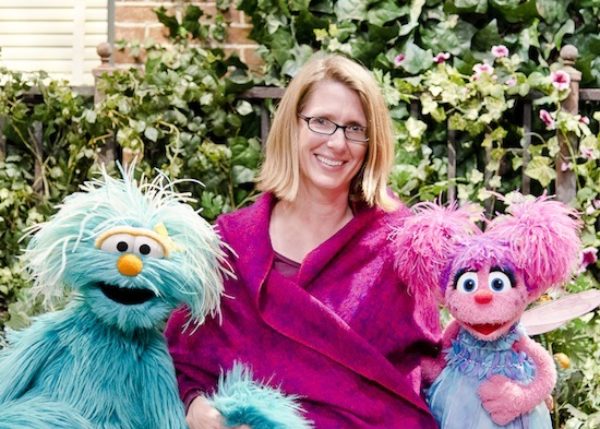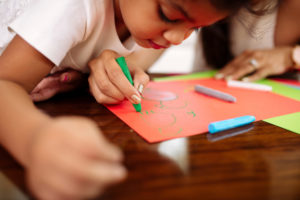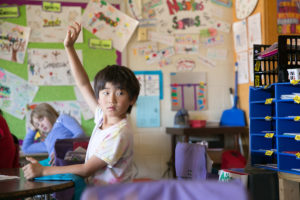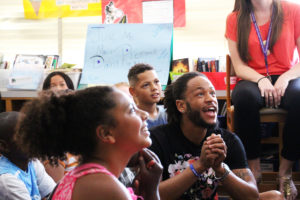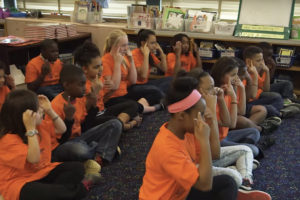Though her work with mindfulness practices is ongoing, her previous research findings suggest that children have a more positive experience when they can physically interact with their parent and do things like sit on the parent’s lap or give the parent a hug. These children also display higher levels of distress when they interact with a parent through Plexiglas or some kind of barrier.
In the absence of physically visiting a parent, Poehlmann-Tynan discovered that writing letters can have a positive benefit as do video calls. Federal and county jails are taking her findings and beginning to develop in-home video platforms so children can stay at home and talk to their parents through a secure video call. She says in-home calls are beneficial because then the kids can be comfortable at home in a more normalized environment.
Outside of the home, the science points to the impact of conditions and attributes of individuals, families and communities that can help children cope more effectively. Providing children of incarcerated parents with stable living arrangements with positive, stimulating and educationally supportive home environments generally improves children’s cognitive and emotional well-being – a relevant discovery since these children are more likely to have unstable placements relative to the general population.
Poehlmann-Tynan hopes her research continues to spark a larger, nationwide policy conversation about how children interact with the criminal justice system, whether it’s updating standards to making visits more child-friendly or exploring alternatives to incarceration. She is collaborating with other researchers who are working on an initiative called Safeguarding Children of Incarcerated Parents to develop protocols for healthy parent-child visits during parental incarceration.
She intends for her work to reach policymakers, who can strengthen antipoverty measures and programs aimed to provide support to economically disadvantaged families and families of color, who experience parental incarceration at higher rates.
- Brita Larson

